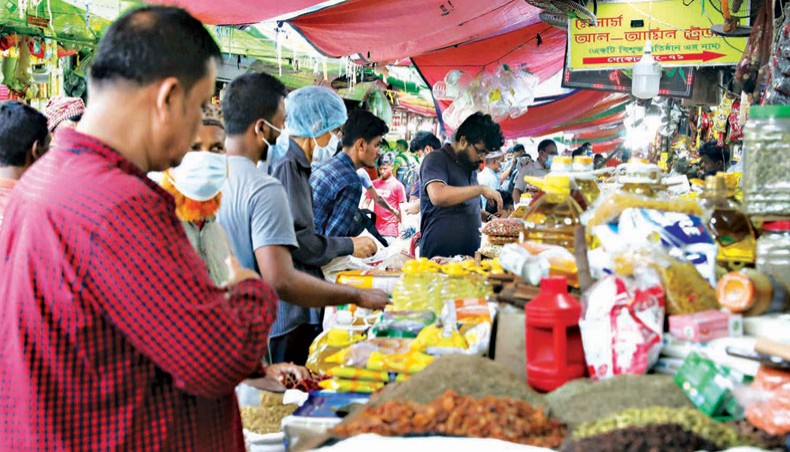The public is enduring severe repercussions due to excessive inflation while our unelected Prime Minister continues to trivialize their suffering. During her farcical press briefings with a select group of sycophantic media individuals, she consistently diverts attention by discussing new food “recipes.” Although sharing recipes might not be entirely negative, the issue lies in the absence of any accountability or acknowledgment of steps taken by the government to control inflation. The primary role of the PM is to address and manage inflation rather than merely suggesting food recipes, something our resilient countrymen can figure out on their own. Lately, her comments have crossed the line, such as her recent remark about the scarcity of eggs during monsoon, when questioned about the soaring price of a dozen eggs, currently around 160 BDT.
The cost of essential items, particularly eggs, a vital and affordable source of protein for those living in poverty, has surged by approximately 22% over the past year. Not only eggs, but the price of potatoes has risen to 60-70 BDT per kilogram from 25-30 BDT just a year ago. Prices of edible oil, onions, vegetables, and meat have also significantly increased, with food inflation hitting a 12-year peak at around 12%. While the government attributes the primary cause of food inflation to the Ukraine-Russia conflict, global food prices have notably decreased according to the FAO report. However, our local market does not reflect these global shifts due to significant domestic market management issues. Frequent sudden hikes in food prices occur due to powerful syndicates manipulating the market. The PM has repeatedly claimed to have “ordered” action against these syndicates, but no substantial measures have been visible, indicating the government’s lack of real intent to contain these market manipulations.
It seems evident that these syndicates are closely associated with key government officials, shielding them from any legitimate actions. The government’s swift suppression of opposition activists and use of force to quell dissent contrasts starkly with its failure to control these syndicates, implying potential ties between the syndicates and the regime. Even high-ranking government officials, like the Commerce Minister, have publicly suggested that dismantling these dishonest trader syndicates might lead to an unforeseen crisis that the government would struggle to manage. Similarly, the Agriculture Minister has admitted the complexity of breaking up trader syndicates engaged in price manipulation.
Alternatively, the government’s complete disregard for the people’s suffering seems apparent. An unelected regime that seized power through electoral manipulation likely prioritizes the illegitimate gains of its allies over the well-being of ordinary citizens. Recent incidents, such as a Jatiyo Party MP raising concerns about price hikes in the last Sangsad session, only to be ridiculed by ruling party MPs, are deeply distressing. For individuals already reducing their food intake and falling deeper into poverty due to escalating prices, such mockery and disdain from ruling party members are painfully callous.
The plight worsens as evidenced by the harsh treatment of RMG workers, the backbone of the country’s economy when they demanded a fair wage hike (currently a meager $75 per month) in response to the soaring inflation. Their peaceful protests in various parts of the capital and surrounding areas were met with brutal oppression by ruling party members and law enforcement agencies. This repression and the use of brute force against the very people struggling due to price hikes are emblematic of the government’s fear of the growing pro-democracy movement.
In response to widespread economic suffering and crisis, people across the nation have associated themselves with the pro-democracy BNP movement, participating in rallies conducted by the BNP in various parts of the country. The government’s autocratic crackdown on this movement reveals its fear of the pro-democracy movement, which has addressed corruption and staged peaceful demonstrations against price hikes, resonating with the public. The ruling regime, fearful of peaceful protests against autocracy, has resorted to intimidating the people through brute force, intending to instill widespread fear.
This autocratic regime’s actions demonstrate its blatant disregard for the people’s hardships and its prioritization of economic gains through the corruption of its supporters and allies. However, historical evidence consistently shows that exerting excessive force on its own citizens does not ensure a lasting grip on power. A regime inflicting harm upon its own people, the foundation of its authority, ultimately paves its own path to destruction, perhaps slowly, but surely. The fight against autocracy is a protracted struggle, but the people will inevitably prevail, and their rights shall be restored.


